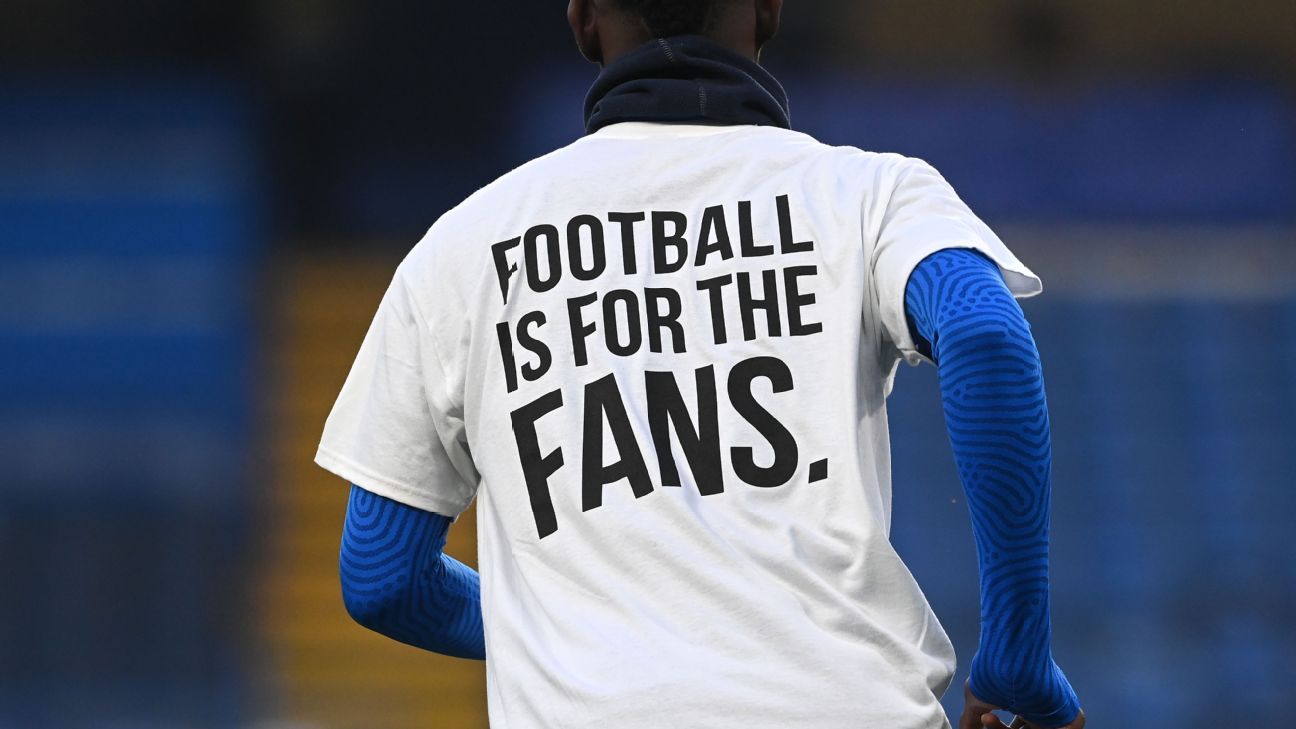The Super League may have come and gone already, from its introduction on April 19 to its collapse on April 20, but the lingering question remains as to when, not if, the game’s biggest clubs will try again. In fact, three of the teams — Barcelona, Juventus and Real Madrid — are still technically “in” and could yet face sanctions for their refusal to back down.
– Marcotti: Will Barca, Real, Juve be banned?
– How fan revolt helped bring down the Super League
With the football world settling again after 48 hours of turmoil and weeks of recriminations, we decided to look back at what drove the 12 clubs to try to break away, as well as how they can mend the damage done by the threat of splitting.
Jump to: AC Milan | Arsenal | Atletico Madrid | Barcelona | Chelsea | Juventus | Inter Milan | Liverpool | Manchester City | Manchester United | Real Madrid | Tottenham
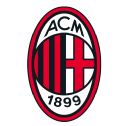
Super League status: Withdrew on April 21
Who are the owners?
Elliott Management, an American hedge fund. They loaned previous owner Li Yonghong €32 million after he bought the company from Silvio Berlusconi, but when he defaulted on the repayments, Elliott took control in July 2018. AC Milan’s CEO is Ivan Gazidis, the former chief at Arsenal.
Financial health of the club?
On the face of it, the club is financially secure under the control of the hedge fund. They appear willing to pump money into the club — as shown by the renewal of Zlatan Ibrahimovic’s contract for another season — but the supporters are concerned with other key players whose contracts are up in June and are yet to be renewed. The club confirmed net losses of €195m in October 2020 for the 2019-20 season, largely due to the coronavirus pandemic, with revenues affected by empty stands, and it had a knock-on effect on their commercial activities. The owners expect more positive results next season having been allowed back into European competition.
Main issues between fans and owners?
The squad, not the Super League. Supporter Marco Dell’Acqua, who wrote the ebook “101 Goals That Made AC Milan Great,” told ESPN the Super League is “out of their mind” right now, as they want the club to secure a top-four spot in Serie A. They’re unhappy that the contracts of star goalkeeper Gianluigi Donnarumma and midfielder Hakan Calhanoglu are both up in June 2021, and neither appear close to signing new deals; there’s also concern that both Fikayo Tomori and Diogo Dalot are only at the club on loan, while the signing of Mario Mandzukic has not paid off. Then there is the ambiguity over the long-mooted new stadium, a joint venture between AC and their great rivals Inter. At present these plans are on hold amid uncertainty over Inter’s ownership and their financial troubles.
What motivated them to join the ESL?
When the coronavirus pandemic took hold of European soccer, the projections were grim. Serie A CEO Luigi de Siervo estimated the league would take a hit in the region of €500m, with the European Club Association projecting continentwide losses to the tune of €4 billion. For a hedge fund invested in stabilising the financial side of the club and growing its value, the Super League allowed a clear path to growing the brand.
What’s next for the owners and fans?
The official communication from Milan ultras, the Curva Sud, around the Super League attacked the “hypocritical” outrage from the world of football over the breakaway league. They called out how no-one helped stop the rise in ticket prices, the death of the old European Cup, the rise of super agents, astronomical wages or the price of TV rights. But as long as Paolo Maldini is technical director, the fans see him as their barrier between the murky corporate side of football and the on-field matters. “He is God,” is how Dell’Acqua put it to ESPN. The relationship between fans and Elliott Management is on pretty sturdy footing at present, but if Donnarumma and Calhanoglu both leave on free transfers, that trust may start to erode. — Tom Hamilton
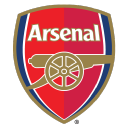
Super League status: Withdrew on April 20
Who are the owners?
Kroenke Sports Enterprises, Denver, Colorado, U.S.A. Bought an initial 9.9% stake in April 2007, took majority control in April 2011, became sole owner in September 2018.
Financial health of the club?
The most recent financial results for 2019-20 showed a loss of £47.8m. Chief executive Vinai Venkatesham admitted at a fans’ forum last month that the club will lose more than £100m in the 2020-21 campaign.
Main issues between fans and owners?
Poor performance and a lack of engagement. Arsenal were Champions League finalists the year before Stan Kroenke first bought into the club. That may be an unfair timeframe given KSE did not assume majority control until 2011, but the club’s decline in the subsequent decade is undeniable. Having been top-four regulars, participating in the Champions League for 20 consecutive years, they are now facing a fifth season out of Europe’s leading club competition and a battle just to finish in the top half of the Premier League.
The Kroenke family have rarely engaged with media or supporters to outline their vision of the club. Josh Kroenke, son of owner Stan, appeared before selected fans over Microsoft Teams last month to admit they had lost the trust of supporters. But as many of them pointed out, they never really had it. The failed Super League project has reignited longstanding hostility towards the owners, who are perceived as having lacked the ruthlessness required to keep Arsenal at the summit, prioritising financial pragmatism over sporting success.
1:04
Mikel Arteta apologies for his role in Arsenal’s failings to secure European football for next season.
What motivated them to join the ESL?
It’s difficult to make a sporting case for Arsenal being one of the top 12 clubs in Europe these days. The Super League greatly benefitted those more vulnerable to the capriciousness of football’s current structure — i.e. reward for current performance — as opposed to some sort of inalienable status assigned by historic achievement. The Gunners fall firmly into that category. They have a stadium debt of £220m and COVID-19 has hit Arsenal particularly hard. This is evidenced in their financial results, but also in them making 55 non-playing staff redundant, asking players to take an initial 12.5 percent pay cut, taking out a £120m Bank of England loan and scaling back their scouting network across Europe.
There were also rumours KSE may view the Super League as the key step in an exit strategy to sell the club, although the Kroenkes continue to publicly insist they remain fully committed to a long-term investment.
What’s next for the owners and fans?
Gunners manager Mikel Arteta often says the “best medicine for everything that happens is win football matches.” KSE have pledged to help Arteta do that by investing further in the squad this summer, and they will need an excellent transfer window in addition to improving their transparency and dialogue with supporters. However, the antipathy is deep-rooted, and it remains to be seen whether the consortium led by Spotify owner Daniel Ek can put together an offer that tempts KSE to sell. The prospect of making a huge profit, while ridding themselves of the hassle, must be appealing on some level. — James Olley
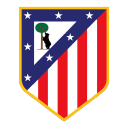
Super League status: Withdrew on April 21
Who are the owners?
Chief executive Miguel Angel Gil Marin — son of infamous former president Jesus Gil — owns 50 percent of the club and president Enrique Cerezo owns 15 percent, despite a 2004 court ruling that both their shares had been acquired fraudulently. Since 2018, 33 percent has belonged to the Israeli businessman Idan Ofer, with the remainder owned by small shareholders.
Financial health of the club?
Atletico ended 2019-20 with a small loss of €1.78m, but that was after the club had been forced to implement temporary, 70 percent pay cuts for players and coaching staff during last year’s lockdown. A lack of liquidity has been a major problem, with some creative transfer business needed in recent years.
Main issues between fans and owners?
The opaque manner in which Gil and Cerezo acquired their stakes — in a last-minute deal, backed by some short-lived bank guarantees, when the club became a limited company in 1992 — has never been forgotten by some fans. The move from the crumbling city-centre Vicente Calderon stadium to the state-of-the-art, out-of-town Wanda Metropolitano in 2017 was met with surprisingly little resistance, with changes to the club’s badge that same year proving more controversial. Fans have delighted in the on-field successes of the last decade, led by long-term coach Diego Simeone, even if they feel uncomfortable with many aspects of supporting an aspiring European superclub.
What motivated them to join the ESL?
Atletico justified their decision to join the Super League with the admission that they were worried about being left behind. “We couldn’t allow ourselves not to be in that group of teams which are the main generators of content in the world of football,” CEO Gil Marin wrote in a letter to club members. The suspicion was that rival La Liga side Sevilla would be next to get the invitation if Atletico refused it. The fact that the club were even considered for inclusion is testament to how far they have come under Simeone — both Sevilla and Valencia would have been ahead of them in the queue 10 or 15 years ago — even if it chafes somewhat with his team’s self-proclaimed identity as hard-working, underdog overachievers.
What’s next for the owners and fans?
There was some negative pushback from Atletico fan groups over their Super League involvement — and their discomfort only grew with Florentino Perez’s increased visibility as the project’s figurehead — but it never boiled over into the kind of street protests seen in England. At the time of writing Atletico are top of La Liga, one point clear of Barcelona and two clear of Real Madrid, and a first league title since 2014 would help assuage that anger, too. — Alex Kirkland
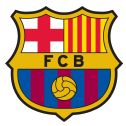
Super League status: One of three clubs still involved
Who are the owners?
Barcelona are technically owned by their 140,000 members (known as “socios”), but the club is run by the president and the board of directors, with elections held every six years. The current president is Joan Laporta, who was elected in March.
Financial health of the club?
Barca announced losses of €97 million for the 2019-20 season, although they claimed they would have turned a profit without the financial damage caused by the coronavirus pandemic. However, the official accounts in recent years have disguised the club’s rising debt. Per a report released earlier this year, gross debt has reached almost €1.2 billion, highlighting just why they were so desperate for the money linked to the Super League.
1:29
ESPN FC’s Alejandro Moreno recaps Barcelona’s woeful 3-3 draw vs. Levante.
Main issues between fans and owners?
There was some anti-Super League graffiti sprayed on the walls outside Barca’s Camp Nou home, but the fan reaction in Catalonia cannot be compared to what was seen in England. In addition, the relationship between Laporta and the supporters is good given that they just voted for him to return to the club. He replaced Josep Maria Bartomeu, whom many fans wanted to see the back of. Laporta also assured members they would get the final say on whether Barca entered the breakaway league.
What motivated them to join the ESL?
The main reason for Barca wanting to be part of the project, as defender Gerard Pique highlighted, was financial. Around half of the club’s €1.2bn gross debt is owed before June 30. Laporta is in talks to spread out those payments with the noteholders, but however you paint it, the club’s economic state is critical. This summer will see them slash more money off the wage bill and they will look to sell several players, too. The Super League provided a quick fix to some of their problems, in theory: the board was already banking on the initial €350m payment to help ease the burden on the coffers and, if possible, fund summer signings. Sources told ESPN earlier this month that the collapse of the Super League has forced them to seek investment from elsewhere.
What’s next for the owners and fans?
As the league collapsed, Barca were one of the few teams to remain committed. They said in a statement that “structural reforms are needed to guarantee the financial sustainability and feasibility of world football.” Laporta has said it is a “necessity,” but also suggested he was open to discussing Champions League reforms with UEFA. As far as Barca are concerned, the project is very much on standby, with the caveat that the members will get the final say. However, the idea that they would vote against it — even if the league were to remain a closed shop — is slightly wide of the mark. Several members consulted by ESPN suggested they believed, if all of Europe’s top teams were involved, Barca “socios” would vote in favor of it. — Sam Marsden
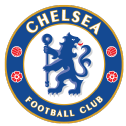
Super League status: Withdrew on April 20
Who are the owners?
Roman Abramovich, Russia, bought the club in July 2003 for £140m.
Financial health of the club?
Chelsea announced profits of £32.5m to the year ending June 30, 2020, although that period does not include the majority of their £220m summer spending as Kai Havertz, Timo Werner, Ben Chilwell and Edouard Mendy all arrived after that date.
Main issues between fans and owners?
Chelsea fans chanted “we’ve saved football” as news filtered through that the Super League they had gathered at Stamford Bridge last month to protest against was collapsing. There is, however, little wider hostility towards Abramovich, with supporters willing to turn a blind eye to questions over how he acquired his wealth and lack of direct public engagement with fans.
The Blues have enjoyed remarkable success during his 18 years at the helm, winning 16 trophies in that time including the Champions League in 2012 and five Premier League titles. No English team has won more honours in that time. Abramovich has also personally overseen efforts to improve the club’s drive to tackle anti-Semitism, while Chelsea were at the forefront of football’s support for the NHS during the pandemic.
A lack of consultation over the Super League proposals has led some supporters to focus their ire on chairman Bruce Buck instead, with the Chelsea Supporters’ Trust calling on him to resign, especially as he had defended the plan to join at a fans’ forum held just a day before everything collapsed.
1:51
Julien Laurens wonders if Emma Hayes would swap WSL champions and UCL finalists Chelsea for the Premier League.
What motivated them to join the ESL?
The money wasn’t vital to Chelsea. Increased revenues are always welcome, but the club were not in the same position as some others, who were perhaps seeking an urgent cash injection to alleviate financial pressures. Sources close to the Blues describe their involvement as “jumping aboard a departing train for fear of being left at the station” and although others contest that view, Chelsea were seemingly willing passengers rather than behind the wheel. The presence of so many other English clubs — six, three more than from any other single country — heightened pressure on the club’s executives to take the plunge, but there were obvious benefits. A huge cash injection could have enabled Chelsea to revive plans to build a new stadium, shelved by Abramovich in 2018 partly due to a row over his British visa, but also amid concerns about the impact of Brexit on large-scale economic investment.
What’s next for the owners and fans?
Abramovich’s distance from the day-to-day running of the club gives him a degree of insulation; sources have suggested he was never fully on board with the proposal and is disappointed with how ill-judged the move was in terms of angering supporters. The club have plans to invest heavily in the team this summer and while pressure on Buck is likely to continue, ultimately Chelsea fans accept the deal with Abramovich. He has pumped in more than £2bn, sacked managers at the first sign of trouble and cemented their status as a major European force. The club also announced that they’re going to allow three selected fans to attend board meetings, a move designed to improve communication between the club and supporters. — James Olley

Super League status: One of three clubs still involved
Who are the owners?
The club’s majority owners are the Agnelli family, titans of Italian industry. They own car manufacturers FIAT and have investments in Alfa Romeo and Ferrari. Andrea Agnelli is the club’s chairman and was one of the chief instigators of the Super League.
Financial health of the club?
Juventus are looking at a complete overhaul this summer, with star player Cristiano Ronaldo one candidate for the exit door. The club bet big on signing Ronaldo to take them into the next level of European football and enhance their global appeal. But they’ve been unable to turn that into dominance at a Champions League level. The coronavirus pandemic has also hit Juventus hard, with the club recording a loss of €113m for the first six months of the 2020-21 season (€50m put down to COVID-19). This followed on revenue losses of €258m for the 2019-20 season, but the club said “the financial trends of sponsorship, advertising and e-commerce remain positive.”
Main issues between fans and owners?
Not the Super League, but the club’s on-field performances. They have surrendered their Scudetto crown to Inter Milan, having won it nine season on the bounce through to this campaign, and are in danger of missing out on Champions League football next season. Manager Andrea Pirlo is under pressure and his future shrouded in uncertainty, with Real Madrid boss Zinedine Zidane and ex-boss Massimiliano Allegri both linked with the club. The fans also want Argentinean forward Paolo Dybala’s future to be sorted out, with his contract up in 2022, and given their widespread agreement the club need to reduce their wage bill. Their links with AC Milan’s Donnarumma will placate some fans, but they’ll expect to be back at the top of the league next season if they’re still in there following the threats of expulsion from the Serie A following their Super League declaration.
0:52
Herculez Gomez debates whether Weston McKennie will leave Juventus this summer.
What motivated them to join the ESL?
Agnelli was one of the chief proponents of the ESL alongside Real Madrid president Florentino Perez. Agnelli was driven by the desire to make the team the best of the best, while extending the club’s commercial power beyond the limits of Serie A. When the Super League collapsed, Juventus said the club “remains convinced of the soundness of the project’s sport, commercial and legal premises.”
What’s next for the owners and fans?
There was barely a backlash. There was one banner on the side of their Allianz Stadium, which read: “Our history should not be covered in mud, bartered and commercialised. We are Juventus FC. No to the Super League… Shame on you [Agnelli]!” That was about it; the main concerns are around Juventus’ on-field form with Pirlo’s future uncertain, and sporting director Fabio Paratici’s contract up in the summer. It remains to be seen whether Agnelli’s hold on the club is loosened after the past month’s fallout, either from external factors like him losing his power on the UEFA executive committee, or from within the family. — Tom Hamilton

Super League status: Withdrew on April 21
Who are the owners?
The newly crowned Serie A champions are owned by Chinese company Suning, a major retailer in China. They purchased a controlling stake in the club (€280m as part of an overall deal worth €750m) in 2016 from previous majority owner Erick Thohir.
Financial health of the club?
Despite having just won their first Scudetto since 2010, the long-term stability of the club is uncertain. The club are in debt, with the laws changing in China over foreign investment and holding company Suning hit by COVID-19 fallout, fans are concerned the club could be in for a turbulent summer. That ambiguity has already seen Milan’s mayor call a halt to plans on the new stadium, a joint project between Milan and Inter. “Until Inter clarifies their corporate position, we will not be able to go on with the project said Beppe Sala, Milan Mayor, in March. The club’s president Steven Zhang was reportedly in talks with BC Partners for fresh investment into Inter earlier in the year, but that did not materialise.
The club’s last published accounts in November 2020 showed a €102m loss for the 2019-20 campaign. Inter legend Javier Zanetti recently said: “It’s true that the club could’ve been sold mid-season. We were going through serious financial problems, even if we weren’t the only ones in such a difficult moment. I saw that as a club we can still improve. The coach has done something extraordinary over two years, now it’s up to us to improve the internal mechanism and aspire to something more.
“The financial problems remain and it could take a couple of years to rediscover that balance. We need people back in the stadium to make the sponsors happy. Basically, a return to normality.”
1:40
ESPN FC’s Gab Marcotti on the framework for Inter Milan defending their Serie A title next year.
Main issues between fans and owners?
The fans are delighted with how the club have performed this season. Gabriele Borzillo, from Radio Nerazzurra, said being an Inter fan at the moment is “beautiful, like a fairytale.”. They wait to see what the next step for their owners — Suning — is but having previously committed to covering Inter’s debts through to this summer, there is growing optimism in the Inter ranks they will be there to see them into the Champions League next term. There’s also a hope among supporters for long-term stability, but that’s hard to guarantee under the current regime. Some Inter fans were vocal in their opposition to the Super League, having started a petition on Change.org directed at vice-president and club legend Javier Zanetti to hear their concerns.
What motivated them to join the ESL?
The club’s financial instability means the guaranteed income from the Super League was a no-brainer. Inter’s owners have been ambitious — they have had the highest net spend in Serie A since 2016 — but with Suning’s share price having halved in the last five years and the limitations from China on foreign football investment starting to kick in, that Super League cash injection would have been very welcome. The owners are keen to increase their fanbase in younger viewers, with the club undergoing a rebrand, complete with a new logo.
What’s next for the owners and fans?
Conte said earlier in the season that Inter’s “project stopped in August [2020]” — seemingly referring to the implications of COVID-19 on the club’s finances and owners. The club need investment to help battle their growing debts and to meet various payments. (Zhang said in February that the “business and ownership are in talks to provide solutions” to “liquidity management.”) But with Conte the highest-paid manager in the Italian top flight, and some aging stars on big wages, Inter face a summer in which they may well need to balance the books.
Speaking to Sky Italia on May 3, Moratta — who Borzillo rates as “one of the best executives in the world” — said: “I hope 100% [we can keep Antonio Conte]. We know we are in a difficult time for sport, not just football, and this inevitably affects the decisions of the big clubs. For example, we have lost around 70 million euros of income. This means our power in the transfer market will be reduced.”
Owner Zhang said after they won the Scudetto: “The future of Inter, of the project and of the Inter world is the same as it has been for 100 years and it will always be this way. Our objective is to spread positive energy, hope, inclusivity and innovative ideas to the people that follow us. — Tom Hamilton
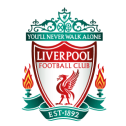
Super League status: Withdrew on April 20
Who are the owners?
Fenway Sports Group (FSG), the U.S.-based owners of Boston Red Sox, led by John W Henry, Tom Werner and Mike Gordon bought Liverpool for £300m in Oct 2010 from previous owners Tom Hicks and George Gillett Jr. Hicks, who valued the club at between £600m-£1bn, described the sale as an “epic swindle” after the Liverpool board voted to approve the deal to avoid the threat of banks calling in loans and forcing the club into administration.
Financial health of the club?
Liverpool reported a pre-tax loss of £46m last month for the financial year ending May 31, 2020, but total losses attributed to the pandemic are expected to total at least £120m, with every game without fans at Anfield costing the club £3m. Liverpool’s debt has grown from £129m a year ago to £268m.
FSG sold a 10 percent stake in its overall business in March, raising £533m, and sources have said that the proceeds will allow a £60m Anfield redevelopment plan to go ahead. Manager Jurgen Klopp is unlikely to be given extra money for signings from that fund, however.
0:49
Katie Nolan provides her key takeaways surrounding the European Super League on Highly Questionable.
Main issues between fans and owners?
Liverpool fans have successfully lobbied FSG over ticket prices in the past and the owners have, on the whole, built a strong relationship with the supporters through regular communication and the appointment of a supporter liaison officer. Rebuilding and modernising Anfield, rather than build a new stadium, was done in response to fans’ wishes. But the ESL plans ignited a sense of betrayal among the supporters, who were angered by FSG’s failure to discuss the proposals before signing up to the new league without any element of consultation.
What motivated them to join the ESL?
The financial benefits of a Super League would have made the debt more manageable and enabled the club to rebuild an aging squad, but there was also a large element of wanting to ring-fence future earnings by playing in a competition without relegation. With a competition mirroring the closed shop nature of major U.S. sports, Liverpool would be assured of annual income without any threat of losing their place. Such a situation would also likely see the club’s value increase substantially and enable FSG to make a huge profit on their initial £300m investment.
What’s next for the owners and fans?
John W Henry issued an apology to the Liverpool fans for his decision to pursue the Super League ambition, but it has not been universally accepted, with influential fans’ groups such as Spirit of Shankly and Spion Kop 1906 demanding talks with the owners. Anger remains hugh among a large section of the Liverpool fan base, who regard the Super League move as being diametrically opposed to the club, and the city’s, socialist roots and community links. But FSG’s previous readiness to communicate and engage means that they have built up some credit with which to rebuild bridges. The fans remain suspicious of their motives, but there is not deep-seated hostility towards the owners as there is at Manchester United or Arsenal. — Mark Ogden
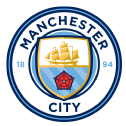
Super League status: Withdrew on April 20
Who are the owners?
Sheikh Mansour bin Zayed al Nahyan, a member of the Abu Dhabi royal family, bought the club from former Thai prime minister, Thaksin Shinawatra, for £210m in 2008. Abu Dhabi United Group, Sheikh Mansour’s investment vehicle, now owns 77 percent of the City Football Group (CFG), which controls 11 clubs worldwide, including City and MLS franchise New York City FC. Chinese conglomerate CMC and the US-based investment group, Silver Lake Partners, own 12 percent and 11 percent of CFG respectively.
Financial health of the club?
City posted a net loss of £126m for the 2019-20 season, with revenue dropping by 11 percent to £478.4m during a campaign that was halted in March 2020 due to the pandemic. Despite the losses, City posted the biggest-ever Premier League wage bill, amounting to £351m.
City’s commercial growth since the Abu Dhabi takeover in 2008 has been staggering, enabling the club to ride out the financial impact of the pandemic. In 2008-09, annual turnover was £88.53m, but it climbed to £535.2m in 2018-19 due to sponsorship and broadcast deal revenue.
1:28
Steve Nicol recaps Man City’s title-winning season under Pep Guardiola.
Main issues between fans and owners?
Protests against the owners have been conspicuous by their absence at City, simply because Sheikh Mansour has, in the eyes of the vast majority of the club’s fans, paid for their dreams to come true. Prior to the 2008 takeover, City were in the perennial shadow of neighbours Manchester United and hadn’t won a trophy since 1976, but Sheikh Mansour’s investment has completely transformed the club’s fortunes. The Abu Dhabi hierarchy have also engaged consistently with fans, consulting them on issues such as the design of a new club badge and continually updating and modernising the Etihad Stadium.
What motivated them to join the ESL?
Fear of missing out appears to have been the driving force, with City’s off-field wealth and recent successes on the pitch suggesting their status quo is without too many problems. But despite their success of the past decade, City continue to be dwarfed by the global popularity and history of virtually all of their fellow 11 Super League rebels, so being on the inside from the start would have ensured that City would not be left behind by the game’s traditional elite. And with Abu Dhabi’s ownership of a Premier League club doing much to raise the profile of the Emirate state, at the same time as highlighting the negative aspects of the regime’s human rights record, the presence of its team in a European Super League would maintain the prominence of the Abu Dhabi brand in a major sporting competition.
What’s next for the owners and fans?
There is no movement whatsoever of City fans attempting to drive out their owners, or even protest against their readiness to be involved in a Super League. In terms of the success that his ownership and investment has brought to Manchester City, Sheikh Mansour could be described as a football supporters’ ideal owner. Abu Dhabi investment has also helped regenerate what had been a neglected and declining area of east Manchester, which is why the City fans have a banner at the Etihad which says “Thank you, Sheikh Mansour.”
Accusations of City being used by Abu Dhabi for the purpose of “sportwashing” continue to be aired, but City fans remain supportive of their owners and are active on social media in terms of defending the club. — Mark Ogden
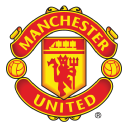
Super League status: Withdrew on April 20
Who are the owners?
The Glazer family, based in Florida, acquired the club through a leveraged buyout worth £550 million in 2005. Joel Glazer and Avram Glazer are both listed as co-chairmen while Bryan Glazer, Kevin Glazer and Darcie Glazer Kassewitz are directors.
Financial health of the club?
United released their second quarter financial results, reporting revenue down 7.2 percent year-on-year to £281.8m with profit dropping by 6.9 percent to £33.8m. Debt was up 16 percent to £455.5m following 12 months of the coronavirus pandemic.
Main issues between fans and owners?
United fans’ relationship with the Glazers is not one that has soured over time, but rather one that’s steadily gone from bad to worse. There were protests when they took over in 2005 because of the way the club was acquired — essentially loading United with debt to complete the buyout without using any of their own money. Over the last 16 years, supporters have seen the Glazers use the club’s commercial might to finance debt repayments and remove money for themselves through dividend payments and share sales. In simple terms, fans believe money generated by the club should be put back in and not taken out.
1:15
Archie Rhind-Tutt reveals Liverpool are now in a tug-of-war with Manchester United for Dortmund’s Jadon Sancho.
What motivated them to join the ESL?
Money. United have huge commercial appeal, and there has been a feeling among the owners for a while that they’re entitled to a bigger piece of the pie. On top of that, the Glazers have seen United miss out on a place in the lucrative Champions League three times since Sir Alex Ferguson retired in 2013. The Super League would have guaranteed a place at the top table year after year, and guarded against the financial penalty for a poor season. It has been the trigger for further fan protests because for many, the ESL idea is exactly what they feared in 2005 — the Glazers using the club as a way to make money with little consideration for the sport or success on the pitch.
What’s next for the owners and fans?
United fans will never accept the Glazers, and it’s unlikely the Glazers will sell because of the income the club generates. Joel Glazer has spoken about “building trust” and while communicating with supporters and having fan representation on the board (as Chelsea have announced this week) would be a start, they’ve shown little appetite for either. It says everything about their ownership that 10 days after saying he wanted to “better communicate” in the wake of the ESL disaster, Joel Glazer was not present on a virtual fan forum. The protests will not be going away any time soon. — Rob Dawson
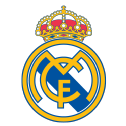
Super League status: One of three clubs still involved
Who are the owners?
Real Madrid are one of four La Liga clubs (Barcelona, Athletic Bilbao and Osasuna are the others) owned by their members, or “socios.” President Florentino Perez was re-elected unopposed for another four-year term last month.
Financial health of the club?
The club’s 2019-20 accounts showed a €106 million (13%) reduction in income due to the coronavirus, although cost-cutting saw them scrape a slim €313,000 end-of-year profit. Perez has said he expects a further reduction in income of €300m for 2020-21.
1:22
Alejandro Moreno reacts to the latest twist in La Liga’s title race: Real Madrid’s dramatic 2-2 draw vs. Sevilla.
Main issues between fans and owners?
Real Madrid’s bottom line is European success, and the club’s three consecutive Champions League titles, from 2016 to 2018, helped quell any fan unrest at Barcelona’s domestic dominance over the last decade. With the Madrid media onside, there is little in the way of mainstream dissent, with Perez’s decision to expel the radical Ultras Sur fan group from the Bernabeu in 2014 widely supported. Perez has run the club (with the exception of a brief three-year interlude) since 2000 and is viewed as a competent administrator who has strengthened the club’s financial and sporting stability immeasurably since taking charge.
What motivated them to join the ESL?
Real Madrid view the Super League as their rightful place, with Perez playing his part as one of the primary instigators (and looking to follow in the footsteps of his predecessor Santiago Bernabeu, and his role in the birth of the European Cup). The scheme is also seen as a financial necessity to enable the club to continue to compete on something like an even footing with Manchester City and Paris Saint-Germain. Perez set out his reasoning (with varying degrees of lucidity) on his interview tour attempting to sell the project.
“There’s always change, it happened in the 1950s with the European Cup,” he told El Chiringuito. “What’s attractive? Games between big clubs… What would bring in money is these 15 clubs playing each other every week. That’s the greatest show in the world, there’s nothing like it. Real Madrid-Manchester United or Barcelona-Milan is more attractive than Manchester United against a small club.”
What’s next for the owners and fans?
Madrid are looking at how they can finance a long-awaited summer rebuild — they haven’t signed a first-team player since 2019 — without the expected injection of Super League cash. The likes of Kylian Mbappe and Erling Haaland are on the wishlist, but the club are already struggling to extend the contracts of club mainstays like captain Sergio Ramos. Madrid remain committed to the Super League ideal, with Perez insisting the project is “on stand-by” and taking “some weeks to reflect,” even if the refusal to renounce the plan means risking long-term punishment from UEFA. — Alex Kirkland

Super League status: Withdrew on April 20
Who are the owners?
English National Investment Company, which later became known as ENIC Group, completed their takeover in 2001 from Sir Alan Sugar.
Financial health of the club?
Tottenham posted a loss of £63.9m for the year ending June 30, 2020. This compares starkly with a £68.6m profit for the previous 12 month period. Chairman Daniel Levy estimated in November that losses for the 2020-21 season could exceed £150m.
1:12
Janusz Michallik expects Harry Kane to leave Tottenham with their Champions League hopes all but gone.
Main issues between fans and owners?
It’s complicated. On the one hand, Spurs exceeded expectations during Mauricio Pochettino’s five-and-a-half years in charge, reaching a Champions League Final while building a £1bn stadium rightly lauded as one of the finest in world football. On the other, they have gone 13 years without a trophy and some believe that is partly due to Levy’s reluctance to spend on the squad sufficiently at crucial moments. Levy is one of the shrewdest administrators in the game, but there are fans who want to see football triumph over fiscal conservatism. Joe Lewis, majority owner of ENIC Group, almost never comments on his plans for the club, and this lack of engagement with fans continued in last month’s decision to join the Super League.
What motivated them to join the ESL?
In March 2020, Levy was the first Premier League chairman to speak out on the financial impact of COVID-19. “People need to wake up to the enormity of what is happening around us,” he said in outlining the “crushing devastation” of the pandemic.
The timing arguably hit Spurs the hardest. At a time when they had invested £1bn in a state-of-the-art stadium seeking to capitalise on generating revenue from live events, people were banned from mass gatherings. Stadium costs had already risen significantly as a result of Brexit causing a shift in the value of the British pound and resulting price hikes for some labour and materials. Spurs sought to use the government’s furlough scheme — but backed down after widespread condemnation — and later took out a £175m Bank of England loan to help with cashflow.
Spurs simply could not afford to be left behind if a Super League was to exist. There is a legitimate argument to be had over whether they merit a place in a sporting sense, but off the field Levy felt they had justified their place: according to Deloitte, they generated the ninth-highest revenue for 2019-20 (£445.7m).
What’s next for the owners and fans?
Over 90 percent of Tottenham Hotspur Supporters’ Trust members want the club’s executive board to resign and in a six-point plan released last Tuesday, they demanded the owners pay any costs or fines incurred by the Super League debacle. They also want a new share ownership structure to “broaden the ownership of the club.” That seems unlikely, but as everywhere else, greater fan interaction will be essential to rebuild relationships. Tottenham this week took the first step towards that by announcing the introduction of a ‘Club Advisory Panel’ which will allow supporters to sit on the board.
Spurs have been the subject of takeover talk before — LA Dodgers tycoon Todd Boehly considered a bid in 2019 — and a sale isn’t entirely impossible, although it’s a very remote possibility as things stand. — James Olley
